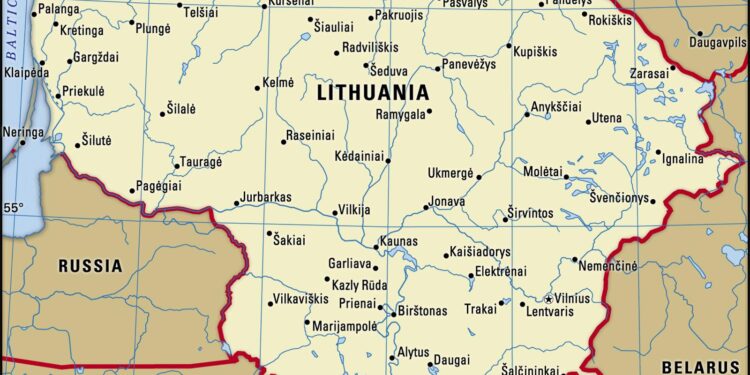Lithuania has suspended the acceptance of new foreign work permit applications as the annual quota approaches its limit, according to a recent announcement by the Lithuanian Radio and Television (LRT). The temporary halt aims to regulate the inflow of foreign labor amid rising demand and maintain a balanced labor market. This move marks a significant development for employers and migrant workers seeking legal employment opportunities in Lithuania, reflecting broader challenges faced by the country’s workforce and immigration policies.
Lithuania Suspends New Foreign Work Permit Applications Amid Rising Demand
In response to an unprecedented surge in demand, Lithuania has temporarily halted the acceptance of new foreign work permit applications. This decision comes as the allocation quota for 2024 approaches its maximum capacity, raising concerns over labor market saturation and administrative capacity. Employers seeking to hire foreign professionals will need to pause their recruitment or explore alternative immigration options until the government revises its policies or increases the quota. The move underscores Lithuania’s efforts to balance economic growth with sustainable workforce management amid shifting regional migration trends.
Key implications of the suspension include:
- Temporary freeze on new work permits, affecting primarily the IT, construction, and manufacturing sectors.
- Prioritization of renewal applications for existing foreign workers to maintain operational stability.
- Potential delays in project timelines for companies relying heavily on foreign expertise.
| Sector | Work Permits Issued 2023 | Quota Usage 2024 (%) |
|---|---|---|
| Information Technology | 1,250 | 85% |
| Construction | 980 | 90% |
| Manufacturing | 670 | 78% |
Implications for Employers and Foreign Workers Navigating the Quota Freeze
With Lithuania imposing a freeze on new foreign work permit applications as the quota reaches its maximum, employers face immediate challenges in workforce planning. Companies reliant on foreign labor must now reassess recruitment strategies, prioritize internal talent development, or explore alternative labor sources within the EU. The suspension also places heightened importance on timely permit renewals and adherence to existing visa conditions, as any missteps could exacerbate staffing shortages.
For foreign workers, the freeze restricts opportunities to enter Lithuania’s labor market, leading many to reconsider their migration plans. Those already working in the country should ensure compliance with permit regulations to avoid legal complications. Key considerations include:
- Monitoring permit renewal deadlines to maintain legal work status
- Exploring alternative employment sectors that might have exemptions or lower restrictions
- Seeking legal advice for navigating this evolving regulatory environment
| Stakeholder | Implication | Recommended Action |
|---|---|---|
| Employers | Restricted ability to hire new foreign talent | Develop internal staffing plans, focus on retention |
| Foreign Workers | Limited access to new permits and visas | Stay compliant, consider alternate markets |
| Government | Quota enforcement ensures labor market balance | Maintain clear communication of policy updates |
Strategies for Businesses to Adapt and Prepare for Future Permit Opportunities
Businesses operating in Lithuania must proactively adjust their workforce strategies to navigate the current pause on foreign work permit applications. Prioritizing local talent development through enhanced training programs and upskilling initiatives can help bridge immediate labor shortages. Additionally, companies should refine their recruitment processes to efficiently manage existing foreign permits and identify key roles that require critical foreign expertise.
Establishing a clear internal tracking system for permit usage and expiry dates can avoid compliance risks and allow timely renewals. The table below highlights essential steps businesses can take to remain agile and compliant amid evolving regulations:
| Key Strategy | Action Points |
|---|---|
| Talent Development |
|
| Recruitment Optimization |
|
| Compliance Management |
|
The Conclusion
As Lithuania approaches its annual quota for foreign work permits, the government’s decision to halt new applications underscores the challenges of balancing labor market demands with immigration controls. Stakeholders across industries will closely monitor how this development affects workforce availability in the coming months. Authorities have indicated that updates on quota adjustments or policy changes will be communicated in due course, leaving both employers and prospective foreign workers awaiting further guidance.
















